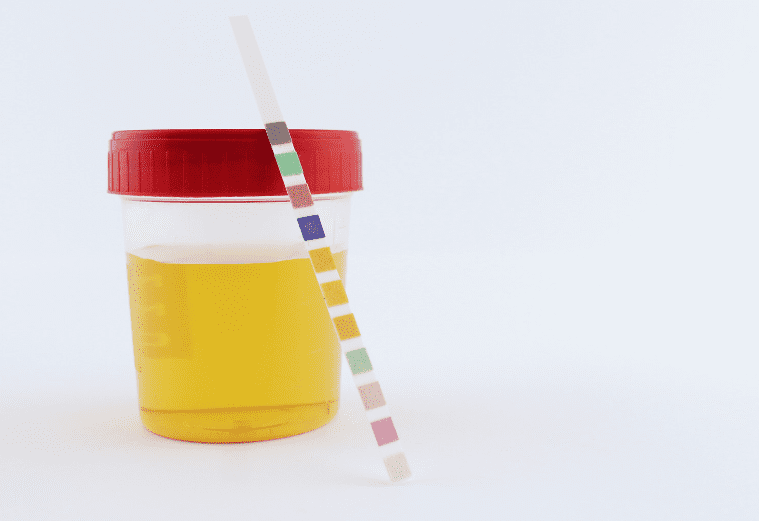
Urine color might seem like a trivial aspect of your health, but it’s actually a remarkably telling sign of your overall well-being. This liquid by-product of metabolism carries a spectrum of information about what’s happening inside your body. From hydration levels to potential health issues, the color of your urine can serve as a preliminary screening tool, alerting you to when things might not be as they should.
Deciphering the Urine Color Chart
Clear to Light Yellow: Optimal Hydration
The spectrum starts with clear to light yellow urine, indicating optimal hydration. This color indicates that you drink enough water and your body is well-hydrated.
Bright Yellow: Vitamin Supplements
Moving on, a neon or bright yellow might catch you off guard, but it’s often a harmless indication that you’ve recently taken vitamin supplements.
Amber or Honey: Dehydration Warning
As the colors darken to amber or honey, it’s your body’s way of sounding the dehydration alarm bell. This suggests that it’s time to increase your water intake.
Orange: Possible Liver Issue or Dehydration
Orange urine can be more alarming, potentially pointing to liver issues or severe dehydration. If this color persists, it’s wise to seek medical advice.
Pink to Reddish: Food Dyes vs. Blood
A pink to reddish hue could be from food dyes or, more concerningly, blood. The latter necessitates immediate medical attention.
Blue or Green: Rare Genetic Conditions or Medication
Blue or green urine is rare and often related to specific medications or genetic conditions. It’s an unusual but not necessarily harmful color.
Brown or Dark Amber: Liver Disorders
Brown or dark amber urine is a strong indicator of liver disorders. A doctor’s visit is imperative if you notice your urine is consistently this color.
Cloudy or Murky Urine: Infection or Kidney Stones
Lastly, cloudy or murky urine can signal an infection or the presence of kidney stones, both of which require medical intervention.
When to See a Doctor: Urine Color Warnings
While many urine color changes are benign and temporary, certain hues can indicate more serious health issues. Understanding when a color change warrants a doctor’s visit is crucial. For instance, persistent orange, pink, red, or dark brown urine colors should prompt you to seek medical advice. Similarly, a healthcare professional should evaluate any sudden or unexplained changes in urine color that persist for more than a day or two.
FAQ
- What does it mean if my urine is clear? Clear urine typically means you are well-hydrated.
- Is it bad if my urine is bright yellow? Bright yellow urine is often a result of vitamin supplements and is usually harmless.
- Should I be worried if my urine is orange? Orange urine can indicate dehydration or liver issues, so it’s a good idea to consult a doctor if this persists.
- What does red urine signify? Red urine can mean blood is present, which requires immediate medical attention.
- Can foods change my urine color? Yes, certain foods can cause temporary changes in urine color.
- How often should I check my urine color? Paying attention to your urine color regularly can help you stay aware of your hydration levels and potential health issues.
Additional tips
- Pay attention to the color of your first urine in the morning, as it often reflects your hydration level from the previous night.
- Monitor your urine color along with your fluid intake and overall health to identify any potential patterns or concerns.
- If you have any questions or concerns about your urine color, don’t hesitate to speak to your doctor.
Conclusion
The Importance of Paying Attention to Urine Color
Monitoring your urine color is a simple yet effective way to keep an eye on your health. By understanding what different colors indicate and when changes might necessitate a doctor’s visit, you can take proactive steps toward maintaining your well-being. Remember, while the urine color chart provides valuable insights, it’s not a substitute for professional medical advice. Always consult a healthcare provider for concerns about your health.